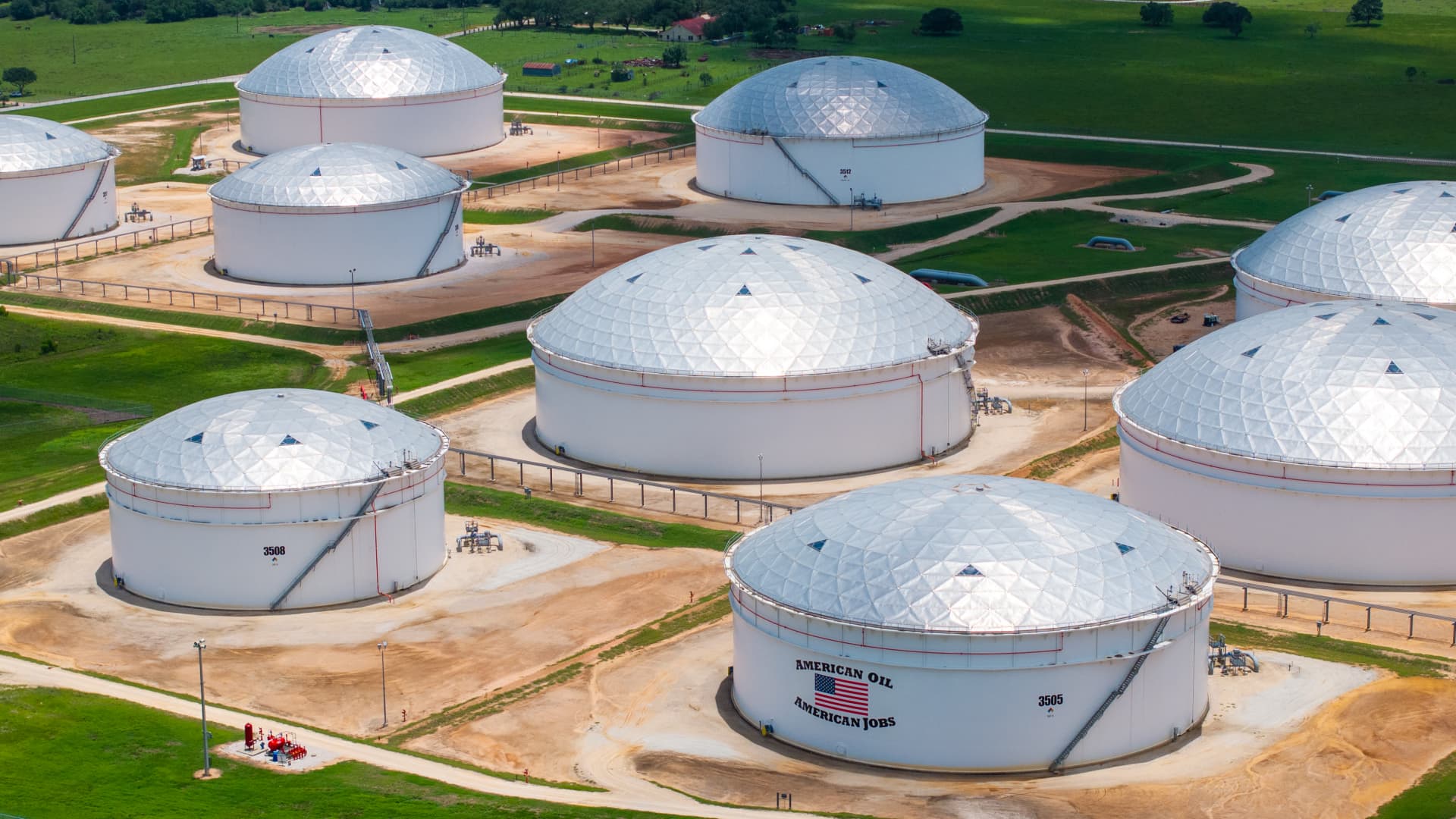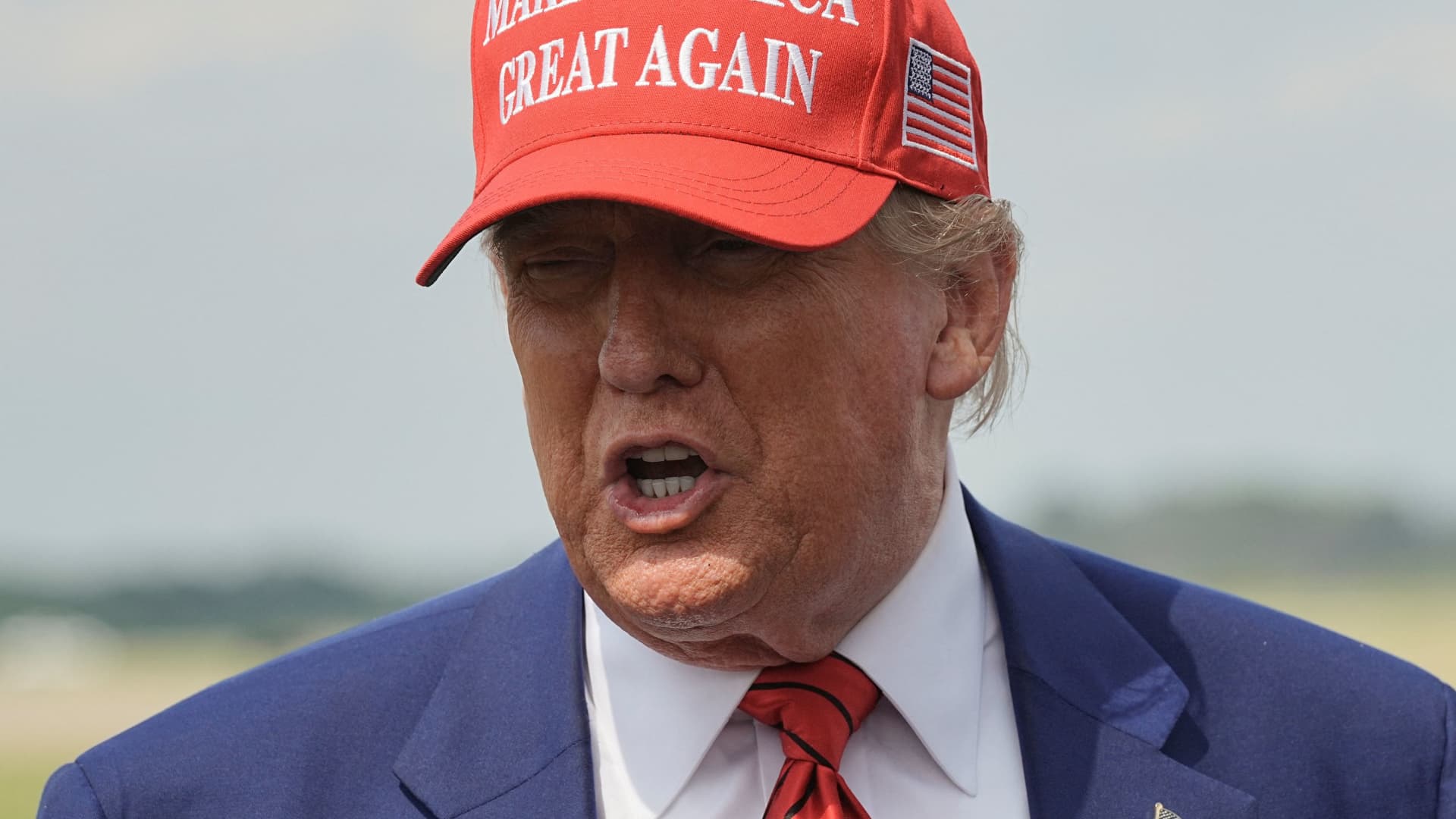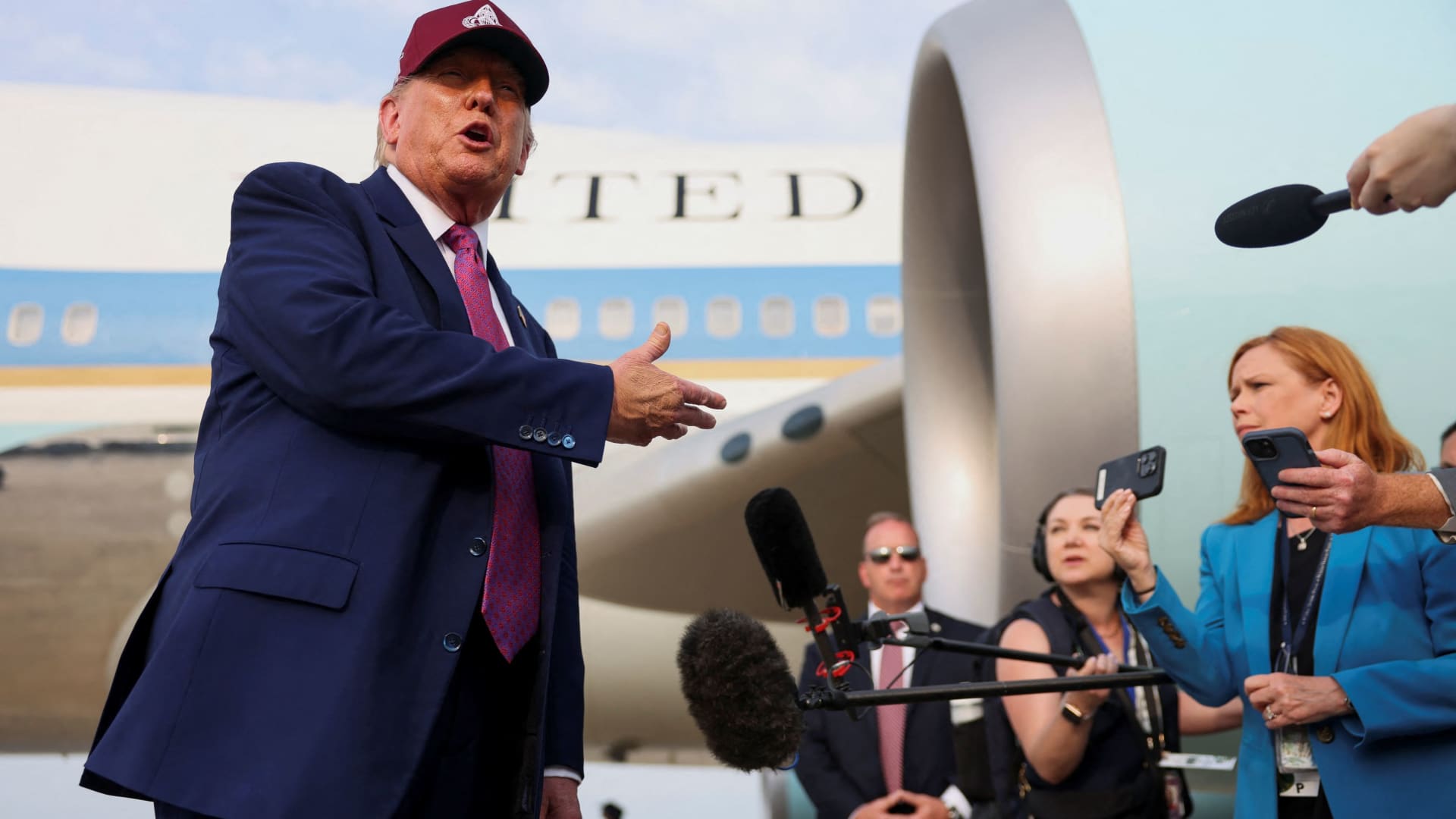
U.S. crude oil futures fell $5.33, or 7.22%, to close at $68.51 per barrel. Global benchmark Brent was last down $5.73, or 7.44%, at $71.28.
Iran launched a missile strike on the Al-Udeid Air Base in Qatar in retaliation for U.S. strikes on its most important nuclear sites over the weekend, according to a NBC News translation of Iranian state TV.
Qatar subsequently confirmed that the Iranian strike did not cause any casualties, according to a spokesperson for the Gulf kingdom’s foreign ministry. Qatar’s air defenses intercepted the Iranian missiles, the spokesperson said.
Oil prices had jumped on Sunday evening in response to the U.S. joining Israel’s campaign against Iran. Brent rose more than 5% Sunday to crack $81 before easing. WTI also reached its highest levels since January before pulling back.
“I think people realize that things in the Middle East will eventually de-escalate and will be in place of a much safer, a much more stable Middle East and world as a whole,” Energy Secretary Chris Wright told CNBC on Monday as oil sold off, crediting President Donald Trump’s foreign policy.
Strait of Hormuz fears
Iranian state media reported Sunday that Iran’s parliament had backed closing of the strait, citing a senior lawmaker. However, the final decision to close the strait lies with Iran’s national security council, according to the report.
U.S. Secretary of State Marco Rubio has warned Iran against attempting to close the strait. It would be “economic suicide” for the Islamic Republic because their exports pass through the waterway, Rubio said.

“We retain options to deal with that,” Rubio told Fox News in an interview Sunday. “It would hurt other countries’ economies a lot worse than ours. It would be, I think, a massive escalation that would merit a response, not just by us, but from others.”
Iran produced 3.3 million bpd in May, according to OPEC’s monthly oil market report released in June, which cites independent analyst sources. It exported 1.84 million bpd last month, with the vast majority sold to China, according to data from Kpler.
Rubio called on China to use its influence to prevent Tehran from closing the strait. About half of China’s waterborne crude oil imports comes from the Persian Gulf, per Kpler.
“I encourage the Chinese government in Beijing to call them about that, because they heavily depend on the Straits of Hormuz for their oil,” Rubio said.
Investors are also watching the odds of a further destabilization of the Iranian regime as a result of U.S.-Israeli hostilities, given the example of the long-spanning impact that the 2011 NATO-led ousting of Muammar Gaddafi had on Libya’s supplies.














Leave a Reply